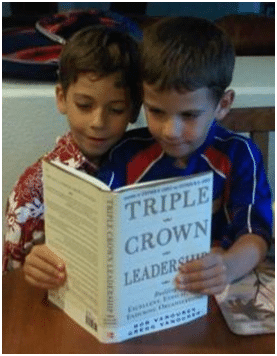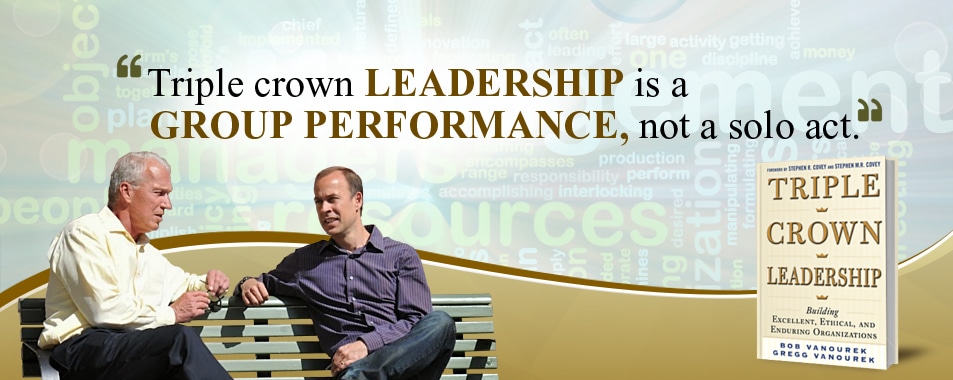Jack, Bob’s seven year-old grandson and Gregg’s nephew, came home from school recently talking about buckets. In this metaphor, we all carry invisible buckets holding our feelings and sense of worth. When our buckets are full, we feel good. When empty, we feel sad.
A bucket filler fills the buckets of others with kindness and consideration.
A bucket dipper does things that make others feel bad. (The metaphor of bucket fillers/dippers is based on the work of Dr. Donald O. Clifton, later enhanced for schools by Merrill Lundgren, the “bucket man.”)
The concept is similar to the late Stephen R. Covey’s concept of “emotional bank accounts” from his book, The 7 Habits of Highly Effective People. According to Covey, we build up trust instead of money in an emotional bank account. We make deposits and build up a reserve through “courtesy, kindness, honesty, and keeping commitments.”
We make withdrawals by showing disrespect, overreacting, ignoring, betraying trust, controlling, and more. After a while, our trust account becomes overdrawn. Our goal should be to build large reserves of trust and goodwill.
Covey related a story in his 7 Habits book:
“I have a friend whose son developed an avid interest in baseball. My friend wasn’t interested in baseball at all. But one summer, he took his son to see every major league team play one game. The trip took over six weeks and cost a great deal of money, but it became a powerful bonding experience in their relationship. My friend was asked on his return, Do you like baseball that much?’ ’No,’ he replied, ‘but I like my son that much.’”
Great bucket filling.

Leadership Derailers Assessment
Take this assessment to identify what’s inhibiting your leadership effectiveness. It will help you develop self-awareness and identify ways to improve your leadership.
Making Deposits in Emotional Bank Accounts
Covey outlined the major ways we can make deposits in emotional bank accounts:
1. Understanding the individual
2. Attending to the little things
3. Keeping commitments
4. Clarifying expectations
5. Showing personal integrity
6. Apologizing sincerely when you make a withdrawal
Bucket filling and emotional bank accounts both rely on the essential leadership skill of emotional intelligence. Life is a set of relationships. Business is a set of relationships. Triple crown leaders are bucket fillers. Thanks, Jack, for reminding us.
Are you a bucket filler or a bucket dipper?

Tools for You
- Leadership Derailers Assessment to help you identify what’s inhibiting your leadership effectiveness
- Personal Values Exercise to help you determine and clarify what’s most important to you
- Traps Test (Common Traps of Living) to help you identify what’s inhibiting your happiness and quality of life
Related Articles
- “Are You Serving Enough Every Day?”
- “How to Become a Better Servant Leader“
- “The Importance of Service in Living a Good Life“
- “The Wonders of ‘Pay It Forward’“
(See also our Servant Leadership Series.)
“Sprinkle joy.”
-Ralph Waldo Emerson

Triple Crown Leadership Newsletter
Join our community. Sign up now and get our monthly inspirations (new articles, announcements, opportunities, resources, and more). Welcome!
+++++++++++++++++++++++
Gregg Vanourek and Bob Vanourek (son and father) are co-authors of Triple Crown Leadership: Building Excellent, Ethical, and Enduring Organizations, a winner of the International Book Awards. Check out their Leadership Derailers Assessment or get their monthly newsletter. If you found value in this, please forward it to a friend. Every little bit helps!


